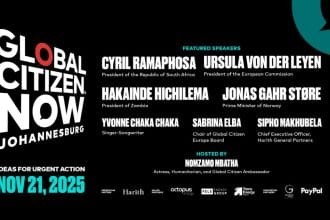Families of South African National Defence Force (SANDF)soldiers in the Democratic Republic of Congo(DRC) have been anxiously waiting for news for months. Many are now left wondering what will happen next after the sudden termination of the Southern African Development Community’s (SADC) Peacekeeping Mission. The sudden withdrawal of South African troops from the conflict zone has caused major concern about their safety and future.
A Mission Cut Short – Why was the SANDF pulled out?
The SADC terminated its military operations in eastern DRC on 13 March 2025. The initial mission was to stabilize the region and assist Congolese forces in their fight against the M23 rebellion group that had gained ground. The deployment was not without cost. In January, 14 South African soldiers and three Malawians were killed in a deadly ambush. This exposed the dangers and led to calls for withdrawal.
Darren Olivier of the African Defence Review criticised the execution of the mission:
Since M23 took Goma, it has been obvious that SAMIDRC’s mandate is no longer viable. The mission should be terminated and the troops removed.
The news was bittersweet for soldiers on the ground. Others felt frustrated because they believed their efforts had been cut short.
Race to Bring Soldiers Home
South Africa began repatriating injured personnel immediately after the announcement of the withdrawal. Four seriously injured soldiers were airlifted back to Pretoria, where they received urgent medical treatment at 1 Military Hospital. Another 17 soldiers with moderate injuries also returned. In addition, 106 soldiers received psychosocial support following months of combat in high-intensity zones.
The families welcomed their loved ones home with relief, but there is still a concern: what about the troops who remain in the DRC?
What Will Become of the Remaining SANDF Troops?
Despite the partial pullout, 1,000 to 2,000 SANDF soldiers remain in the DRC. Their return is uncertain. SADC, unlike the United Nations, has not released a timeline. The SADC has not yet released a detailed timeline, unlike the United Nations.
Helmoed Romer Heitman, an independent defence analyst, raised serious concerns about the viability of the mission.
“The idea that SADC troops could achieve what 15,000 UN forces with air support couldn’t in 15 years, was a fantasy.”
The longer South African troops stay in the region, the higher the risk.
What this Means for South Africa’s Role in Africa
The termination of SANDF’s DRC peace missions could have long-term implications for South Africa’s role in the continent’s security. The country has played a major role in peacekeeping for many years. However, this sudden withdrawal raises concerns about future interventions.
The withdrawal may signal a shift in focus to diplomatic engagement rather than military, but it leaves a dangerous vacuum of power in the region. M23 and other armed groups may be able to strengthen their grip without external forces. This could lead to more instability.
Minister of Defence Thandi Modise assured South Africa’s public that it remains committed to peace-keeping efforts, but acknowledged its difficulties.
Our brave soldiers gave their best in extremely difficult circumstances. “Their safety remains our number one priority as we close our operations in the DRC.”
Analysts and military families have called for clearer communication about withdrawal plans. South African troops may find themselves in dangerous situations if they don’t have a clear exit state
ALSO READ: SANDF Confirms Return of Wounded Soldiers From DRC for Medical Treatment
What Lies Ahead?
South Africans are divided over the SANDF peace mission to DRC, which was aborted due to increasing casualties and strategic difficulties. Others worry about the impact of the withdrawal on regional stability.
It is clear that South Africa must carefully review its military interventions. In order to guarantee the effectiveness of future peacekeeping missions, they will require better intelligence and clearer exit strategies.
Currently, the most important thing is to get all SANDF soldiers home safely. The country is closely watching the diplomatic efforts to determine what lessons can be drawn from this controversial chapter of its peacekeeping history.













